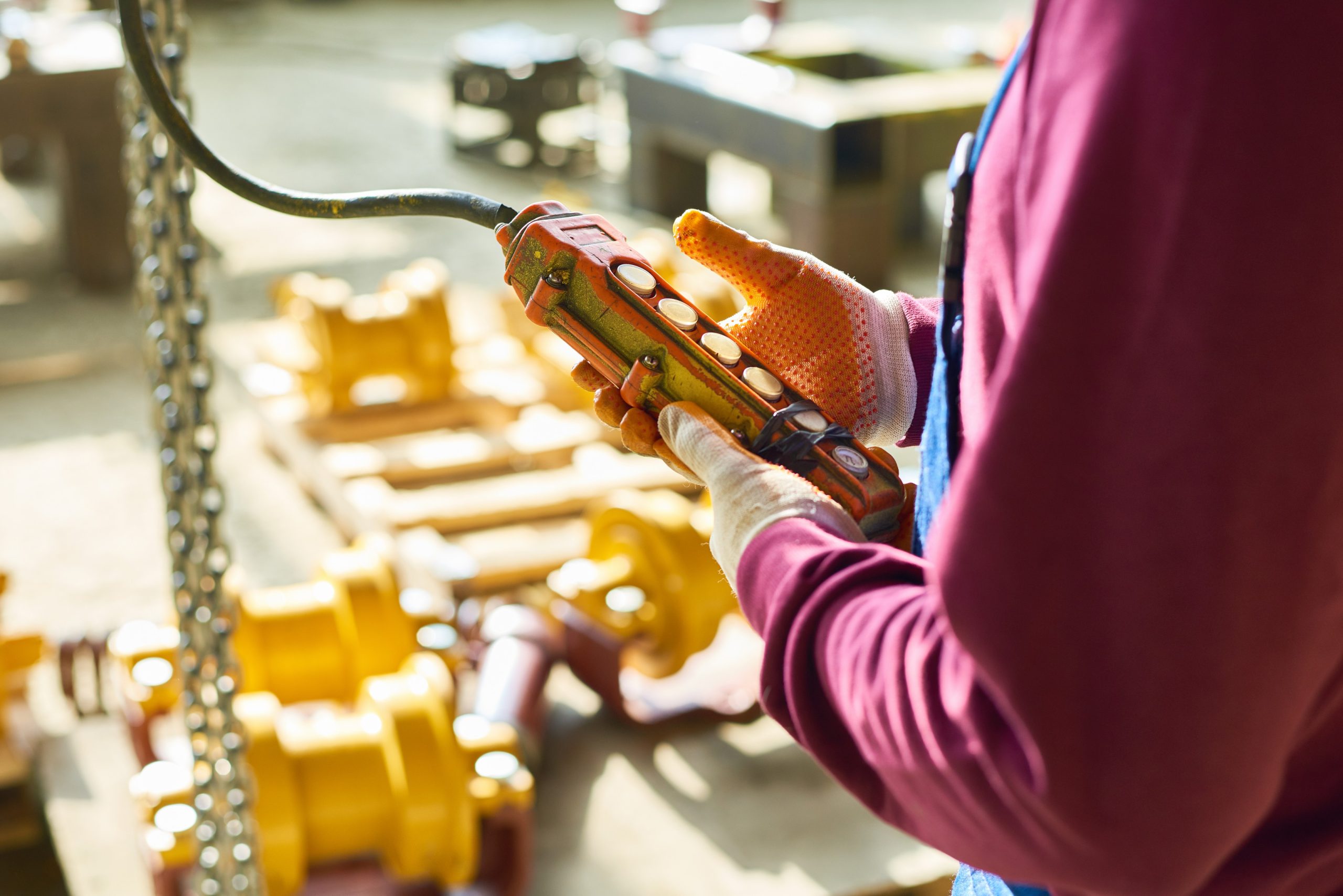
Importing industrial machinery: what you need to know
If you want to know how to import industrial machines, either for your own use or for resale, keep reading this article and see what you need to know to carry out a safe operation.
If you need legal assistance from our team, please message us on WhatsApp.
Author: Bianca Noronha Anchieta Aragão
Why import industrial machines?
Having state-of-the-art machinery is a factor that many entrepreneurs have sought to incorporate into their companies in recent years.
The economy, agility, and reduction of costs and waste in the productive activity conferred by the use of a specific machinery are some of the innumerable benefits that make industrial machines so desired.
However, the national production of machinery and equipment has not yet reached the technology already available in the foreign market and, consequently, cannot meet the domestic demand.
In this scenario, one way out for those who want to explore this market or just want to improve their machinery, without being harmed by the lack of technology in the domestic market, is to import industrial machinery.
If you are interested and want to know more about this subject, keep reading this article!
What is needed to import industrial machinery?
First, you need to know that not all companies can import industrial machinery. For this, it’s necessary to insert the respective CNAE in its social contract and make some registrations.
In summary, regardless of the reason for importing machines, registration with Siscomex (Integrated Foreign Trade System) and RADAR (Monitoring of the Performance of Customs Interveners) is required.
Both registrations must be requested from the Federal Revenue and can take up to 10 days to be approved, provided that the CNPJ doesn’t have any type of pendency.
For this reason, it’s recommended that the company regularize its tax situation before applying for registration with the aforementioned bodies.
In addition, there is a need to know the customs import regimes, which can be the import regime by temporary admission or the definitive import regime.
What are import customs regimes?
Knowing what the import customs regimes are before carrying out any negotiation can help to avoid major future headaches, as they define how your operation will be taxed.
As previously presented, there are two types: temporary admission import regime and definitive import regime.
In the first regime, the company can temporarily import certain goods, that is, after a certain period, it must export the machinery to its origin.
It’s important to point out that, in this case, there is an advantageous reduction in the rates of the Common External Tariff (TEC).
In the definitive import regime, as the name implies, the company must import the good definitively, causing its total nationalization and paying all applicable tariffs and taxes.
In this situation, we recommend that you seek help from a professional specialized in the area to carry out a survey in order to identify tariff preferences and international agreements so as not to lose the discounts granted.
How to import industrial machines?
Now that you know what is needed to import, we will see step by step how to import industrial machinery and equipment.
After all the necessary registrations mentioned above, you must:
- Do a search to find a reliable supplier, define which product will be imported and hire;
- Check the regulation of the goods to make sure that the Brazilian technical standards and safety requirements are being observed;
- Hire a customs broker or specialized company to take care of all bureaucratic procedures and ensure that the product is imported legally;
- Calculate import costs, such as taxes, customs fees, freight, and others;
- Choose a secure international payment method;
- Check the required legal documentation, such as Commercial Invoice, Bill of Lading (BL), Certificate of Origin, among others;
- Attend to the customs clearance that occurs after the arrival of the product in Brazil and hire, if necessary, legal support for any requirements;
- Carry out the registration of the Import Declaration (DI) and the initial nationalization procedures, followed by the issuance of the Entry Invoice;
- After all the above procedures, hire insurance and national freight to transport the machinery to your company.
Finally, be aware that the process of importing industrial machinery requires a lot of attention, as any irregularity found by the tax authorities entails a custom fine of 1% of the value of the goods.
Therefore, always keep in touch with an expert to review the legal documents and avoid irregularities.
Can I import used industrial machines?
If your goal is to import more economically, you can choose to import used machinery and equipment.
On the other hand, it’s worth mentioning that this type of operation has more legal restrictions when compared to the importation of new machinery.
Currently, it’s required that there is no equivalent machinery in the national territory and only allows the importation of a specific list of items, according to SECEX Ordinance (nº 23 – 07/14/2011) and Customs Regulation (Decree nr. 6.759/2009).
In addition, it’s necessary to obtain approval from the Undersecretary of Foreign Trade Operations (SUEXT), through an Import License.
What are the costs and taxes that must be paid on importation?
The import operation incurs the Import Tax (II), the Tax on Industrialized Products (IPI), PIS and Cofins contributions and the Tax on Circulation of Goods (ICMS).
In these cases, taxation may vary according to the goods. An example of this is the IPI, which has a zero rate in several cases.
In addition to this, the Import Tax must also be analyzed, as it is an extra-fiscal tax that has many essential caveats for the importation of industrial machinery and equipment.
Are there advantages in importing industrial machinery?
Recently, a resolution was published granting exemption from Import Tax for 564 industrial machines and equipment not produced in Brazil.
Said exemption will be in force until December 31, 2025, and should benefit more than 40 sectors of the economy, such as, for example, the manufacture and resale of machinery and equipment.
Therefore, it is necessary to identify in the legislation which items are subject to exemption from said tax in order to benefit from this tax incentive.
Finally, in view of everything presented in this article, you must have realized that importing industrial machinery can be a great opportunity, but that it is, however, a complex operation that cannot be carried out without the necessary support. Therefore, it is recommended that you work with a team of qualified and experienced professionals who know all the peculiarities of this type of operation, preventing you from losing benefits or suffering losses.
For this, you can count on the Koetz Advocacia!
If you want to know more about how we can help you, contact us through our service area. We will be happy to serve you!
If you need legal assistance from our team, please message us on WhatsApp.

